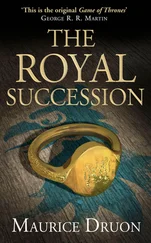Perhaps Blanche with her eighteen years and curiously volatile character, amounting almost to heedlessness, which permitted her to pass instantaneously from despair to an absurd optimism – Blanche, who could suddenly stop weeping because a bird was singing beyond the wall, and say wonderingly, ‘Marguerite! Do you hear the bird?’ – Blanche, who believed in signs, every kind of sign, and dreamed unceasingly as other women stitch, Blanche, perhaps, if she were freed from prison, might recover the complexion, the manner and the heart of other days; Marguerite, never. There was something broken in her that could never be mended.
Since the beginning of her imprisonment she had never shed so much as a single tear; but neither had she ever had a moment of remorse, of conscience or of regret.
The Chaplain, who confessed her every week, was shocked by her spiritual intransigence.
Not for an instant had Marguerite admitted her own responsibility for her misfortunes; not for an instant had she admitted that, when one is the granddaughter of Saint Louis, the daughter of the Duke of Burgundy, Queen of Navarre and destined to succeed to the most Christian throne of France, to take an equerry for lover, receive him in one’s husband’s house, and load him with gaudy presents, constituted a dangerous game which might cost one both honour and liberty. She felt that she was justified by the fact that she had been married to a prince whom she did not love, and whose nocturnal advances filled her with horror.
She did not reproach herself with having acted as she had; she merely hated those who had brought her disaster about; and it was upon others alone that she lavished her despairing anger: against her sister-in-law, the Queen of England, who had denounced her, against the royal family of France who had condemned her, against her own family of Burgundy who had failed to defend her, against the whole kingdom, against fate itself and against God. It was upon others that she wished so thirstily to be avenged when she thought that, on this very day, she should have been side by side with the new king, sharing in power and majesty, instead of being imprisoned, a derisory queen, behind walls twelve feet thick.
Blanche put her arm round her neck.
‘It’s all over now,’ she said. ‘I’m sure, my dear, that our misfortunes are over.’
‘They are only over,’ replied Marguerite, ‘upon the condition that we are clever, and that quickly.’
She had a plan in mind, thought out during Mass, whose outcome she could not yet clearly envisage. Nevertheless she wished to turn the situation to her own advantage.
‘You will let me speak alone with that great lout of a Bersumée, whose head I should prefer to see upon a pike than upon his shoulders,’ she added.
A moment later the locks and hinges creaked at the base of the tower.
The two women put their hoods on again. Blanche went and stood in the embrasure of the narrow window; Marguerite, assuming a royal attitude, seated herself upon the bench which was the only seat in the room. The Captain of the Fortress came in.
‘I have come, Madam, as you asked me to,’ he said.
Marguerite took her time, looking him straight in the eye.
‘Messire Bersumée,’ she asked, ‘do you realize whom you will be guarding from now on?’
Bersumée turned his eyes away, as if he were searching for something in the room.
‘I know it well, Madam, I know it well,’ he replied, ‘and I have been thinking of it ever since this morning, when the courier woke me on his way to Criquebœuf and Rouen.’
‘During the seven months of my imprisonment here I have had insufficient linen, no furniture or sheets; I have eaten the same gruel as your archers and I have but one hour’s firing a day.’
‘I have obeyed Messire de Nogaret’s orders, Madam,’ replied Bersumée.
‘Messire de Nogaret is dead.’ 2
‘He sent me the King’s instructions.’
‘King Philip is dead.’
Seeing where Marguerite was leading, Bersumée replied, ‘But Monseigneur de Marigny is still alive, Madame, and he is in control of the judiciary and the prisons, as he controls all else in the kingdom, and I am responsible to him for everything.’
‘Did this morning’s courier give you no new orders concerning me?’
‘None, Madam.’
‘You will receive them shortly.’
‘I await them, Madam.’
For a moment they looked at each other in silence. Robert Bersumée, Captain of Château-Gaillard, was thirty-five years old, at that epoch a ripe age. He had that precise, dutiful look professional soldiers assume so easily and which, from being continually assumed, eventually becomes natural to them. For ordinary everyday duty in the fortress he wore a wolfskin cap and a rather loose old coat of mail, black with grease, which hung in folds about his belt. His eyebrows made a single bar above his nose.
At the beginning of her imprisonment Marguerite had tried to seduce him, ready to offer herself to him in order to make him her ally. He had failed to respond for fear of the consequences. But he was always embarrassed in Marguerite’s presence and felt a grudge against her for the part she had made him play. Today he was thinking, ‘Well, there it is! I could have been the Queen of France’s lover.’ And he wondered whether his scrupulously soldierly conduct would turn out well or ill for his prospects of promotion.
‘It has been no pleasure to me, Madam, to have had to inflict such treatment upon women, particularly of such high rank as yours,’ he said.
‘I can well believe it, Messire, I can well believe it,’ replied Marguerite, ‘because one can clearly see how knightly you are by nature and that you have felt great repugnance for your orders.’
As his father was a blacksmith and his mother the daughter of a sacristan, the Captain of the Fortress heard the word ‘knightly’ with considerable pleasure.
‘Only, Messire Bersumée,’ went on the prisoner, ‘I am tired of chewing wood to keep my teeth white and of anointing my hands with the grease from my soup to prevent my skin chapping with the cold.’
‘I can well understand it, Madam, I can well understand it.’
‘I should be grateful to you if from now on you would see to it that I am protected from cold, vermin and hunger.’
Bersumée lowered his head.
‘I have no orders, Madam,’ he replied.
‘I am only here because of the hatred of King Philip, and his death will change everything,’ went on Marguerite with such assurance that she very nearly convinced herself. ‘Do you intend to wait till you receive orders to open the prison doors before you show some consideration for the Queen of France? Don’t you think you would be acting somewhat stupidly against your own interests?’
Soldiers are often indecisive by nature, which predisposes them towards obedience and causes them to lose many a battle. Bersumée was as slow in initiative as he was prompt in obedience. He was loud-mouthed and ready with his fists towards his subordinates, but he had very little ability to make up his mind when faced with an unexpected situation.
Between the resentment of a woman who, so she said, would be all-powerful tomorrow, and the anger of Monseigneur de Marigny who was all-powerful today, which risk was he to take?
‘I also desire that Madame Blanche and myself,’ continued Marguerite, ‘may be allowed to go outside the fortifications for an hour or two a day, under your guardianship if you think proper, so that we may have a change of scene from battlements and your archers’ pikes.’
She was going too fast and too far. Bersumée saw the trap. His prisoners were trying to slip through his fingers. They were therefore not so certain after all of their return to Court.
Читать дальше



![Джеймс Чейз - Not Safe to Be Free [= The Case of the Strangled Starlet]](/books/417649/dzhejms-chejz-not-safe-to-be-free-the-case-of-the-thumb.webp)








